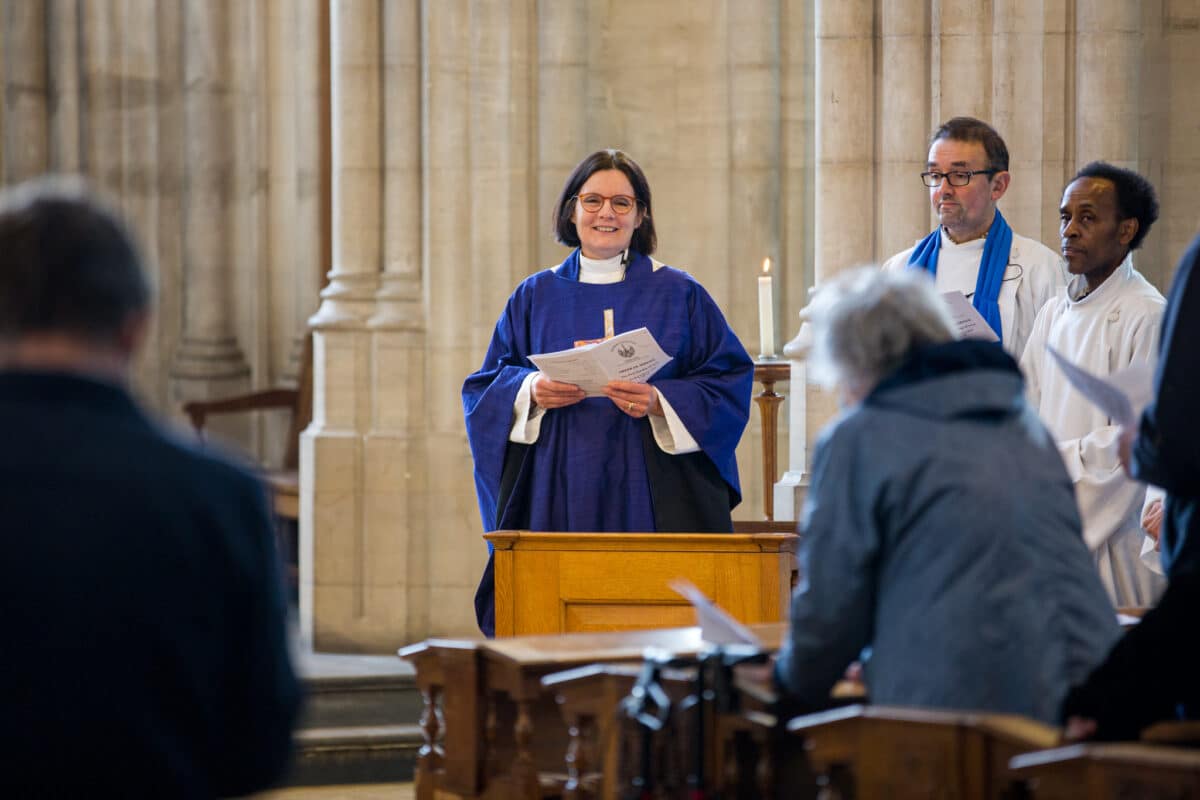“Will you be diligent in prayer, in reading Holy Scripture, and in all studies that will deepen your faith and fit you to bear witness to the truth of the Gospel?”
This question is asked of bishops, priests and deacons in the Ordinal and places life-long learning, support and development at the heart of the lives and ministry of all clergy.
In the Diocese of London this individual clergy responsibility is supported by a range of training and development opportunities and resources offered and organised at both diocesan and Episcopal Area level.
These include direct training courses and conferences, indirect training through coaching, work consultancy and study leave, further and higher education and ongoing development through the process of the Ministerial Development Review.
Who is it for?
CMD training is available to all licensed, stipendiary and self-supporting clergy, where possible.
Where can I find out about training events?
Opportunities can be seen on the events webpages or by contacting your Area Director of Ministry.
Can I take study leave?
Stipendiary clergy may apply for a three-month period of study leave after ten years of ordained stipendiary ministry (and every ten years thereafter). Study leave will not normally be granted within the first two years of a new appointment, or within two years of expected retirement.
More information can be found here.
What about Lay Ministry training?
Information for Licenced Lay Ministers can be found on the Lay Ministers support pages.
Who is responsible for my training?
There is a mutual responsibility and expectation for on-going support, training and development between individual members of the clergy and the Diocese. This was further formalised in the Terms of Service defined by Common Tenure.
The bishops have ensured the provision of processes, financial resources and supporting staff. Each member of the clergy has the responsibility to seek out and use the resources available, both at a local level and more widely. These expectations include the requirement for all Licensed Clergy to undertake an Annual Ministerial Development Review with a trained MDR Consultant of their choice. Additionally, all licensed clergy will have a triennial Episcopal Review.
Where does IME2 fit in?
Initial Ministerial Education Phase 2 (IME2) covers the first three years after an ordinand is made a deacon, and follows a clearly defined and managed programme. CMD offers support to clergy at all stages of their ministry.
Curates are welcome to attend CMD training events alongside their IME2 years 1-2 training programme, if agreed with their Training Incumbent and ADI (Area Director of IME2). In year three of IME2 curates’ join two CMD training days – Your Next Move and Chairing Meetings, as part of their final preparations for leaving curacy and moving towards their next post. Post curacy ongoing formation and development is supported through CMD.
